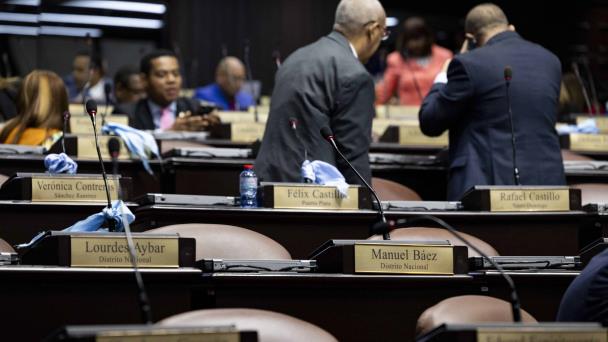If he Executive power would not have withdrawn the project tax reform -or Fiscal Modernization- that was submitted to the National Congress in October of this year, the legislators that they were going to discuss this proposal to approve it or they would not have to decide whether to eliminate the privilege that they have enjoyed since 1966 to matter vehicles exonerated from taxes.
With only one article, his own Executive power sought to root out this benefit by which only between 2020 and July 2024 the tax stopped receiving 2,140 million pesos for 499 vehicles imported, with more than 170 of these being luxury or sports cars, according to a database shared Free Diary by the General Directorate of Customs.
“The Ley no. 50, of November 9, 1966, which authorizes each legislator, deputy or senator, to matter and vehicle for personal use exempt from payment of taxes y rights customs regulations”, which was successively modified by other laws, says article 69 of the reform project.
Current law allows legislators import free of taxes and vehicle of motor every two years, without matter the type, make, model, year and displacement. This opening is taken advantage of by deputies and senators to bring units at their convenience or sell the exemption, thus diverting this privilege to third parties.
Of the 499 vehicleshay legislators which stand out for the high amount exonerated under their investiture. There is the case of the former deputy Elpidio Baez. In his name, two were imported between 2020 and July 2024. Ferrari new ones, a new Porsche and a used Land Rover SUV. For the four units the tax stopped receiving 26.4 million pesos.
The former deputy Dionisio de la Rosa (today mayor of San Cristóbal) also stands out in the database for having imported two Ferrari new and a Rolls-Royce used, which represented a fiscal sacrifice of 25.1 million pesos.
Likewise, on behalf of the deputy Silvia García Polancowho represented the country in the Central American Parliament and came to preside over said body, there is an exemption of 23.7 million pesos for the importation of a Ferrari used, a Lamborghini used and a new Mercedes Benz SUV.
The government itself recognized the weight of the exonerations
In the recitals of the tax reform project that was withdrawn from the National Congress, it is stated that the tax expenditure resulting from the exemptions, exonerations and reductions of taxes in force, “has contributed in a sustained manner to the reduction of tax pressure, without, in “In many cases, the objective of attracting the investment of new capital for the promotion of the national economy or for any other object of social interest is met, as established by the Constitution of the Republic.”
In view of this, the government itself recognized in the document that it is necessary to begin a process of rationalization of said incentives without affecting legal security.
Editor-in-Chief of Diario Libre. Previously, Economy editor since 2021. She has specialized in investigative, multimedia and data journalism, and has been a journalism teacher. Winner of an Honorable Mention in the Award for Journalistic Excellence of the Inter-American Press Association (IAPA), among other recognitions.
Data and digital audiences analyst, astronomy enthusiast and visual communicator.
1. Can you please provide an insight into the context of the proposed tax reform project and its significance? How would it have impacted the country’s fiscal policies?
2. The Executive Power’s decision to withdraw the tax reform project has led to a heated debate about the privileges enjoyed by legislators. What are your thoughts on the justification for this decision, and how do you think it would have affected the general public’s perception of their representatives?
3. The article highlights the abuse of these privileges by some legislators, with luxury vehicles being imported and sold. Do you think money should have been redirected towards more productive uses, and what measures can be implemented to prevent such misuse of public funds in the future?
4. The government has recognized the weight of these exemptions and reductions on tax pressure, as mentioned in the recitals of the tax reform project. Do you believe that a process of rationalization is necessary to ensure transparency and accountability in fiscal policies? How can this be achieved without harming the country’s economic growth?
5. as journalists covering this story, what challenges did you face in uncovering this information through the database shared by the General Directorate of Customs? How significant was the role of data and investigative journalism in bringing this issue to light?


